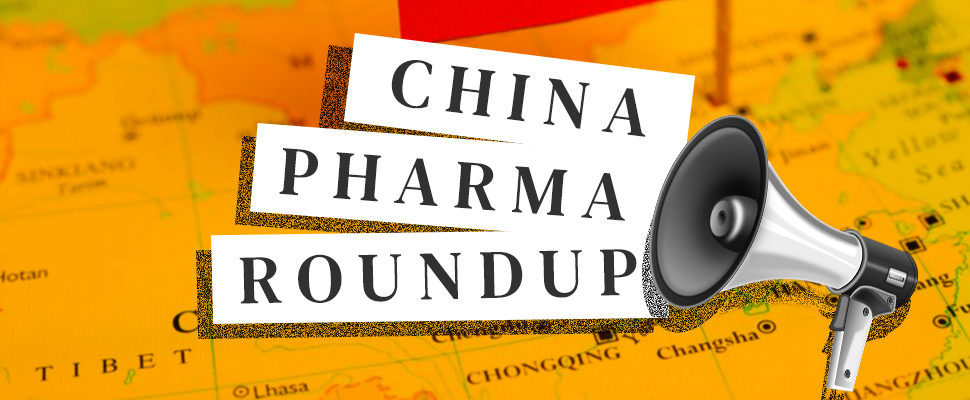A roundup of some of the biggest healthcare and pharma news from China including the exclusion of Pfizer’s Paxlovid from the country’s national insurance coverage, CanSino’s promising mRNA booster trial results, WuXi Biologics and GSK’s T-cell engager deal, Biocytogen and Hansoh’s antibody collaboration …
Pfizer CEO rules out generic Paxlovid (Reuters)
According to CEO Albert Bourla, Pfizer is not, as believed, in talks with Chinese authorities to license a generic version of its COVID-19 treatment Paxlovid. The company is, however, working with a local manufacturer on the branded product.
“We are not in discussions. We have an agreement already for local manufacturing of Paxlovid in China. So we have a local partner that will make Paxlovid for us, and then we will sell it to the Chinese market,” he said.
Pfizer’s Paxlovid not included in China’s national insurance (Associated Press)
Chinese health authorities have not included Pfizer’s COVID-19 treatment drug in the country’s national reimbursement list that would have allowed patients to get it at a cheaper price throughout the country, claiming the drug is too expensive.
Paxlovid has been widely sought after in China since the country began phasing out its “zero-COVID” restrictions and a surge of infections started sweeping through the country.
CanSino reports ‘positive’ interim data from COVID-19 mRNA booster trial (Reuters)
As the country races to tame a severe outbreak of COVID-19 infections, local company CanSino Biologics has reported what it called “positive” interim data from its experimental COVID-19 mRNA booster vaccine in a mid-stage clinical trial.
The CanSino booster vaccine, CS-2034, one of China’s first home-grown potential vaccines based on mRNA technology, underwent a 433-person trial on people who had already received three doses of an inactivated vaccine. 28 days following the booster shots, adults in the CS-2034 group had virus-neutralizing antibodies at levels that were 27 times as high as those in the inactivated vaccine group against the original Wuhan strain, and 23 times higher against the BA.1 Omicron variant, the company said.
WuXi Biologics and GSK sign USD 1.46 billion deal for multiple novel bi- & multi-specific T cell engagers (BioSpectrum Asia Edition)
China-based CRDMO, WuXi Biologics, and GSK have entered a license agreement under which GSK will have exclusive licenses for up to four bi- & multi-specific T cell engager (TCE) antibodies developed using WuXi Biologics’ proprietary technology platforms.
Under the terms of the agreement, GSK will be granted an exclusive global license for the research, development, manufacturing, and commercialisation of a pre-clinical bispecific antibody that crosslinks tumour cells and T cells by targeting a tumour-associated antigen (TAA) on tumour cells and CD3 expression on T cells and up to three additional pre-clinical TCE antibodies currently at an earlier discovery stage.
Biocytogen and Hansoh Pharma announce China antibody license agreement (BioSpectrum Asia Edition)
Biocytogen Pharmaceuticals and Hansoh Pharmaceutical Group have announced an antibody collaboration, assignment and exclusive license agreement. Biocytogen will provide a license to Hansoh for their selected fully human antibody molecules against the designated target for the development, manufacturing and commercialisation globally.
The licensed antibodies were selected from Biocytogen’s Project Integrum, a large-scale antibody drug development project for 1000+ potential drug targets using large-scale in vivo drug efficacy screening.
Viking accuses Chinese biotech Ascletis BioScience of stealing NASH trade secrets (Fierce Pharma)
San Diego-based biotech Viking Therapeutics has accused China’s Ascletis BioScience of using information shared under a confidentiality agreement to turbocharge its expansion into the NASH development race.
“Viking discovered that the potential business collaboration that Ascletis Bioscience proposed was actually a ruse to steal Viking’s VK2809 trade secrets, circumvent years of research and development, and release its own drug product to compete with Viking’s VK2809,” the American company states in its lawsuit.
HighTide Therapeutics Raises USD 107 Million in Series C Financing (PR Newswire)
HighTide Therapeutics has raised a USD 107 million Series C round led by the TCM Healthcare Fund of Guangdong, managed by China Development Bank Capital.
Proceeds of the financing will be used to advance multiple global development programs, including mid- to late-stage clinical trials, and the commercialization and business development of the company’s pipeline. HighTide’s lead candidate HTD1801, is a novel multifunctional molecule, being developed for the treatment of patients suffering from complex metabolic and digestive diseases.
US puts hold on Sino Biopharm’s F-star takeover (Endpoints)
F-star Therapeutics will not be able to close its deal with Chinese buyer, Sino Biopharm, after the US government’s Committee on Foreign Investment in the United States panel put a hold on the takeover, citing national security risks.
China’s Sino Biopharm made a USD 161 million deal with F-star in June, as a means to gain access to its bispecific antibody platform.
Everest Medicines begins production at new Chinese mRNA vaccine manufacturing facility (Endpoints)
China-based biotech Everest Medicines has opened the doors to a new manufacturing facility to produce mRNA-based vaccines located near Shanghai in Jiashan, Zhejiang Province and is set to produce around 700 million doses of mRNA vaccine annually.
One of the catalysts behind the new facility is Everest’s reaching cooperation agreement with Canada-based Providence Therapeutics last year to help advance Providence’s mRNA vaccines and therapies. Currently, Everest is developing an Omicron-based bivalent booster candidate for Covid-19 and is planning to start clinical trials in China next year. Everest also plans to develop other vaccines against other infectious diseases and even cancers with the mRNA platform as well.



